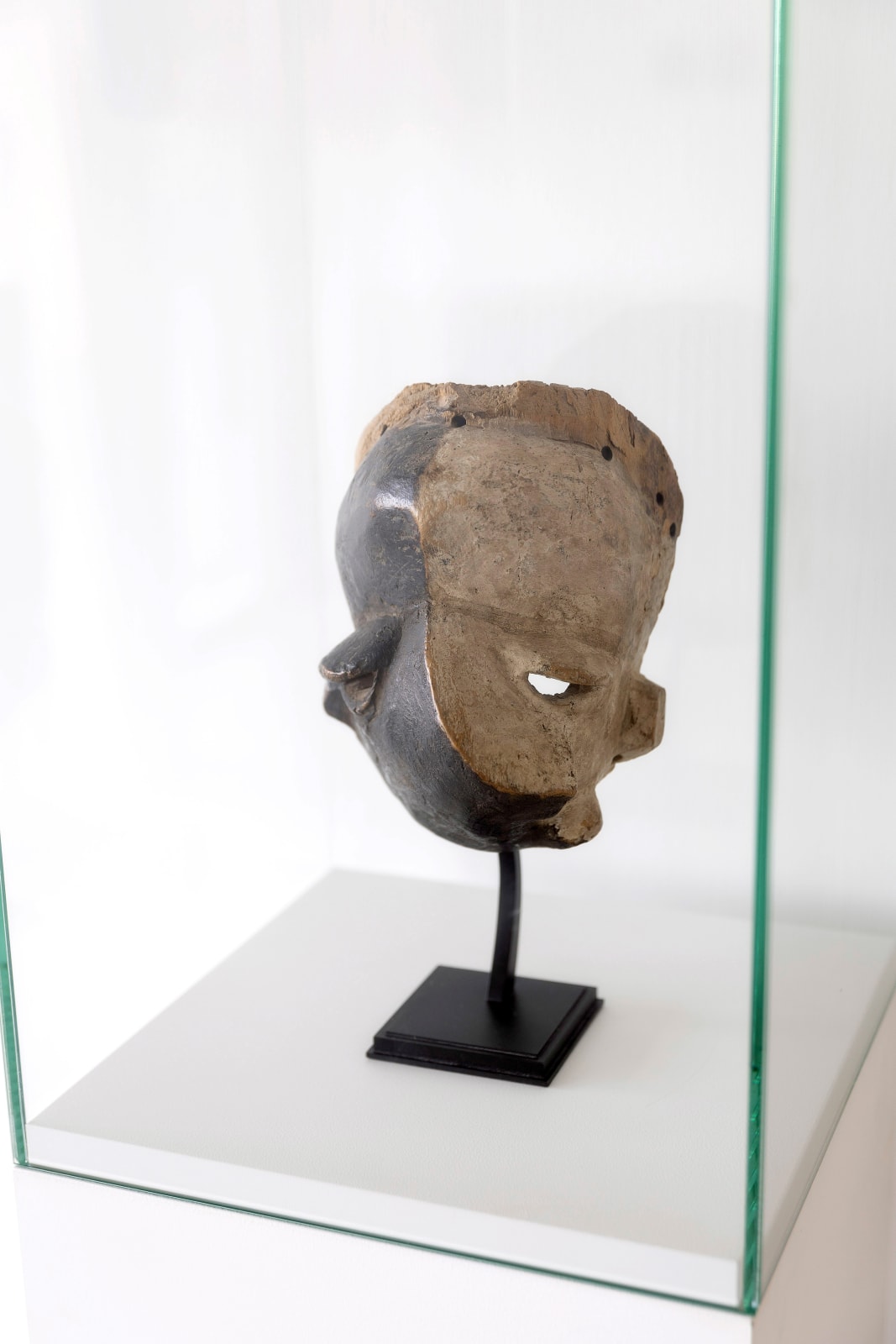 Deformity Mask
Deformity Mask
 Deformity Mask
Deformity Mask
 Deformity Mask
Deformity Mask
 Deformity Mask
Deformity Mask
 Deformity Mask
Deformity Mask
 Deformity Mask
Deformity Mask
Anonymous Pende artist
origin: D.R. Congo - early 20th century
7 1/2 x 4 3/4 x 4 3/8 in
Further images
One of the most recognizable of Central Pende masks is the black-and-white Mbangu. Mbangu dances to the song ‘We look on (unable to help), the sorcerers have bewitched him’. Mbangu is ‘bewitched’; however, since the Pende worldview attributes almost all illness and personal misfortune to the malice of others, what really is at issue is chronic illness or disability and our response to it.
The black-and-white division of Mbangu’s face evokes the scars of someone who fell into the fire due to epilepsy or some other medical condition. Indeed, scientists have demonstrated that the flickering flames of night-time campfires are proven triggers for seizures. However, the scars associated with epilepsy are only one of Mbangu’s symptoms. He wears a humpback. If he does not carry a bow and arrows, dancers usually avail themselves of a cane to indicate his general physical weakness. Many sculptors depict the traces of smallpox on the black eyelid, and the face distorted by a paralysis of the facial nerve. The multiplication of complaints signals that Mbangu does not represent any one illness. Instead, the sculptor and performer collaborate to make Mbangu a composite sign for illness and disability, of all the misfortunes that might befall someone.
The black-and-white coloration deserves further comment. Color symbolism in the masks is usually positional. While white can have several meanings, the most common one comes through its association with the white kaolin clay used in all healing rites. On the other hand, black is the shade of sorcery and illness and it is striking that all the marks of deformation often fall on the black side. Therefore, the bicolouration depicted may have a secondary meaning in situating Mbangu at the crossroads between healing and illness.
Mbangu displays (according to Pende physiognomic theory) features appropriate to masculine form: assertive forehead, well-articulated cheekbones, and projecting eyes. Facing the challenge of chronic disability, Mbangu is also facing the challenge of bitterness and envy. The artis has gone far beyond the naturalistic representation of a physical complaint to comment on the toll of chronic illness on the psyche. This mask conveys an extraordinary delicacy by contrasting the gentle perfection of the features with their systematic distortion. The sculptor responds to the widespread version of Mbangu’s song: ‘Do not mock your neighbor, do not laugh at your brother. The sorcerers have bewitched him’. In other words, anyone may fall prey to misfortune. It could happen to you.
Further reading: Strother, Zoé, “Pende”, Milan, 2008.
Provenance
Collection David Henrion, Brussels
Duende Art Projects, Antwerp, Belgium, 2022
let's keep in touch
Join our community & never miss out on a DUENDE moment from now on
* denotes required fields
We will process the personal data you have supplied to communicate with you in accordance with our Privacy Policy. You can unsubscribe or change your preferences at any time by clicking the link in our emails.







